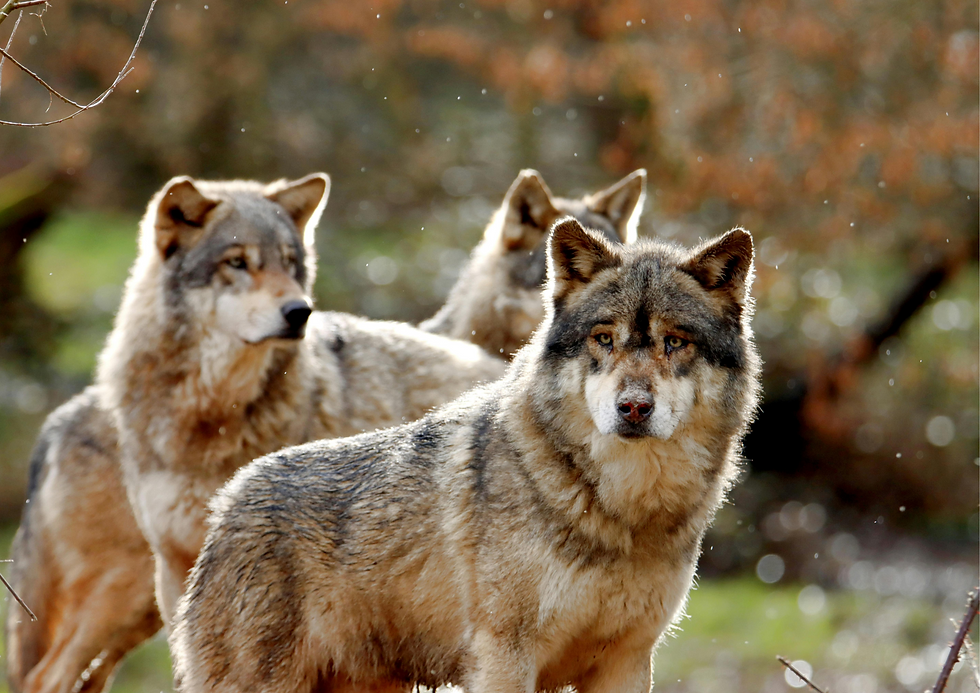5 animal terms that need to be modernized
- Jul 1, 2015
- 3 min read
The words we choose to use send powerful messages out into this world. The words we choose to use when discussing animals are no different. Subconscious associations and assumptions are made in split seconds, based on words spoken and written. And the language the world at large uses when talking about animals is often maligning.
Some say the terminology regarding animals doesn’t matter, and that the accepted terms should remain just that. But when you see how heated the issue can become—then you see that yes, indeed, it does matter. Here are five common animal terms used in our society that really ruffle my feathers:
ANIMAL RIGHTS ACTIVIST Use instead: animal welfare activist
Though the terms “animal rights” and “animal welfare” are not exactly interchangeable, the influential Associated Press came out earlier this year with this change to its Stylebook, the go-to guide journalists refer to when writing articles. I prefer “animal welfare” to “animal rights” and like this change for many reasons: For one, because “animal rights,” in our society, has developed such a negative connotation to it, painting compassionate individuals involved in the humane movement as extremists. And two, because “animal welfare” is a broader, generic term that isn’t emotionally loaded. Bravo, AP—and hopefully more of the population will come around to using “welfare” instead of “rights,” too.
PET Use instead: animal or companion animal
The vocabulary we use is so often derogatory to animals, diminishing that special relationship we share with our cat, dog, horse or other. “Pet” is a perfect example of this. The word communicates the old-school view (that is still commonly held, unfortunately) that animals are lesser creatures, and simply property to be owned. I find “animal” or “companion animal” to be more dignified. My animals are not just family—they are sentient beings, too, and they deserve better. The Journal of Animal Ethics agrees: In 2011, the publication released a fascinating and controversial article discussing this very idea—that we should be careful in the language we use to describe animals. (If only “companion animal” were a little less clunky-sounding.)
OWNER Use instead: caregiver
Related to “pet” above, the term “owner” communicates the idea that animals are merely pets or property—not the special beings that we are fully committed to caring for and loving. Additionally, I prefer “caregiver” over terms such as “guardian” because it clearly conveys the emotional component of our relationship (vs. describing it in a cold and legal-sounding way).
IT Use instead: he or she
Let’s be honest, our special dog or cat—even if neutered or spayed—is not an “it.” Yet so many animals are referred to as “it.” In the first scientific paper she ever wrote, Jane Goodall used “he” and “she” instead of “it” to describe the chimpanzees—to much backlash. Kudos to Goodall for refusing to buckle under pressure and change, and also for promoting the groundbreaking idea that animals are emotional creatures worthy of our empathy and respect.
STRAY Use instead: lost
When homeless animals need adoption, which word makes them sound more adoptable, “stray” or “lost”? Exactly. Calling animals strays conjures up images of beastly creatures with matted fur that no one wants. But change the word to “lost”—now you create a new, positive image of a loved animal needing a new home. Or an animal who has lost his home, and needs help finding his way back. For tips on how to reunite lost animals with their human caregivers, check out the Missing Pet Partnership.
What about you? Do you feel comfortable calling your animal a pet? Why or why not? What other animal terms do you think need updating?




Comments